AULA 01/2023 – Simple Past, Past Continuous and Colloquial. - 23/01/2023
VAMOS INICIAR NOSSA AULA COM OS SEGUINTES TEMPOS VERBAIS
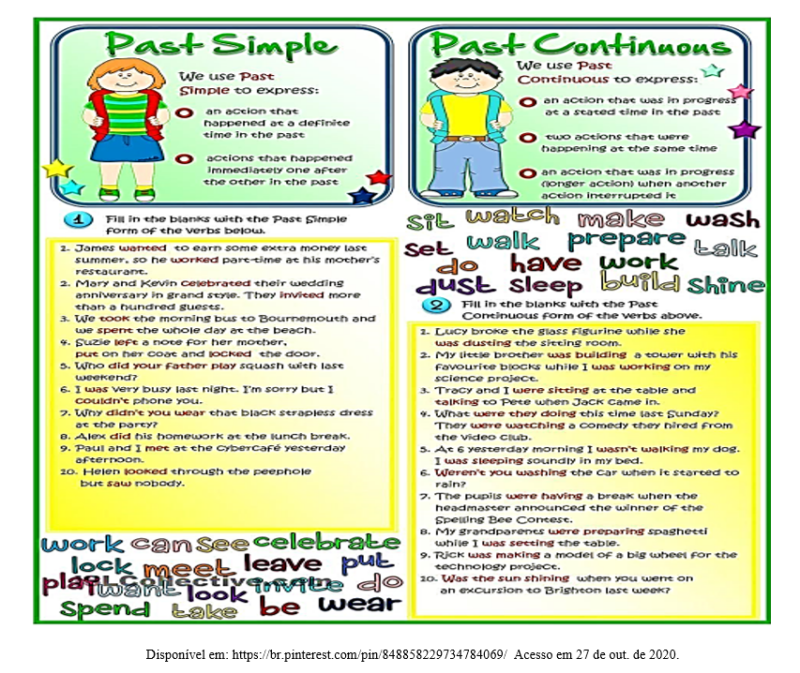
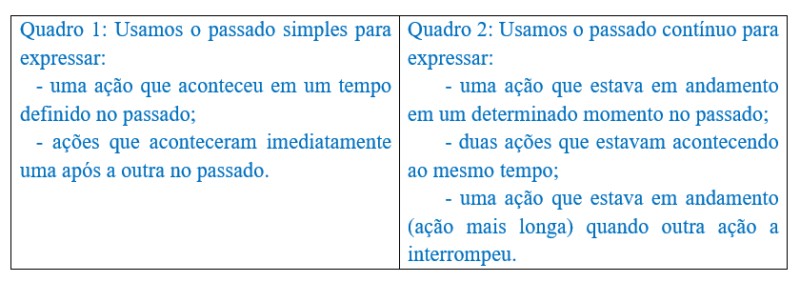
Examples:
Past simple:
- Sophia went to the park yesterday. Sofia foi ao parque ontem.
Past Continuous:
- Sophia was reading a book when Peter called her. Sofia estava lendo um livro, quando Peter a chamou.
Agora vamos conhecer as diferenças entre o modo formal e informal de fala na Língua Inglesa!
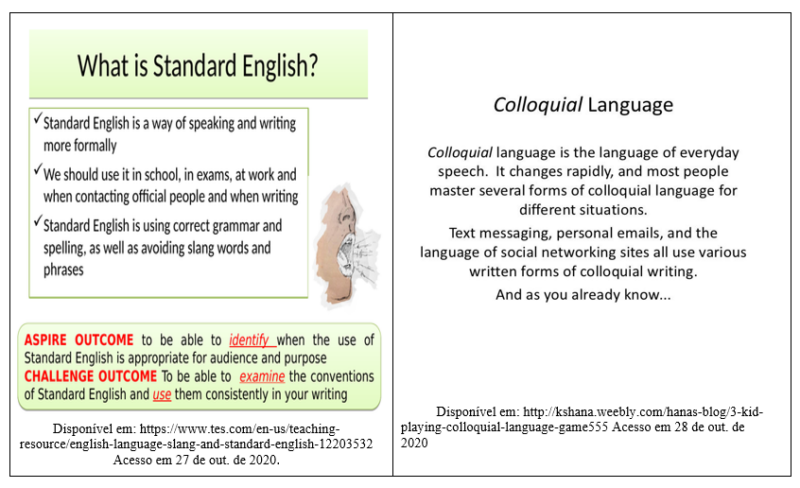
Vamos às atividades!

1. Choose the correct answer to complete the sentences. (Escolha a alternativa correta para completar as sentenças.)
I- _________________________ answered the teacher’s question.
A) The class C) Nancy
B) The student D) Daniel
II- ___________________________ was watching TV two days earlier.
A) The teacher C) The students
B) Nancy D) Daniel
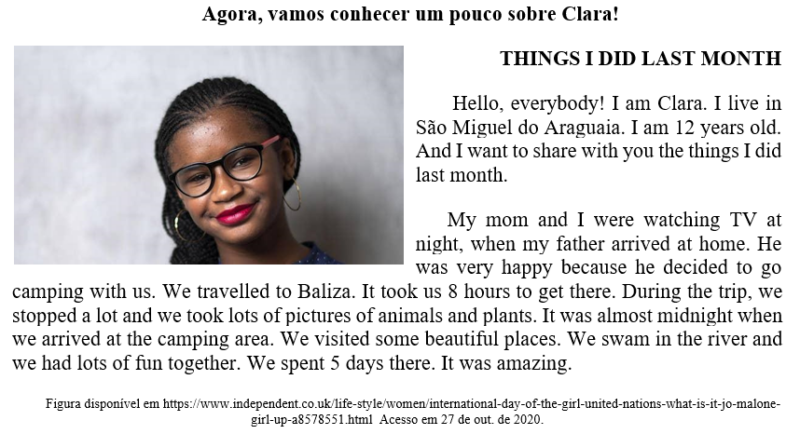
2. All the sentences are wrong. Find the mistakes and correct them. (Todas as sentenças estão erradas. Encontre os erros e corrija-os.)
A) Clara moved to Baliza with her family last month.
B) Clara’s mother was very happy because they decided to go camping.
C) They arrived at the camping area in the morning.
3. Answer the questions below in English. (Responda às questões a seguir em inglês).
A) Where did Clara and her family travel?
B) How long did it take them to get to Baliza?
C) Did they stay at a hotel?
D) Did they like the trip?
4. Find the past tense forms of the verbs listed below in the puzzle and circle them. Then, choose 5 verbs and write sentences. (Encontre as formas do passado dos verbos listados abaixo no quebra-cabeça e circule-os. Em seguida, escolha 5 verbos e escreva frases.)
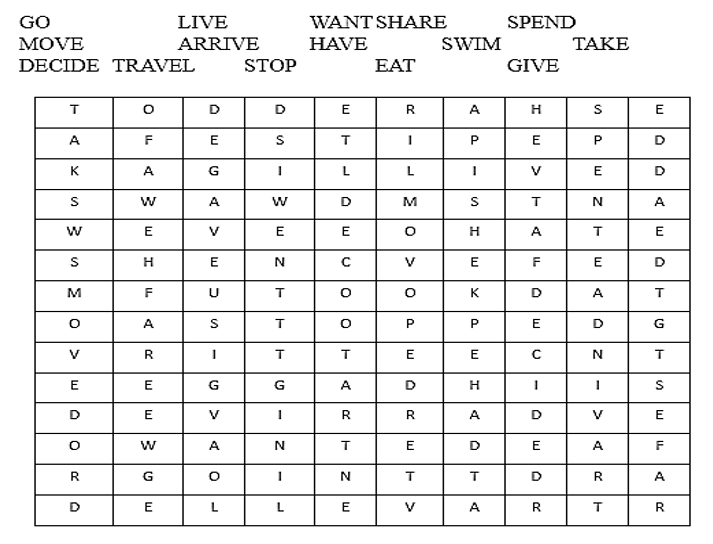
5. Read the cartoon and the notes below. Then, identify the reason why they can’t communicate. Answer in Portuguese. (Leia o cartum e as observações a seguir. Depois, identifique a razão pela qual eles não conseguem se comunicar. Resposta em Português)
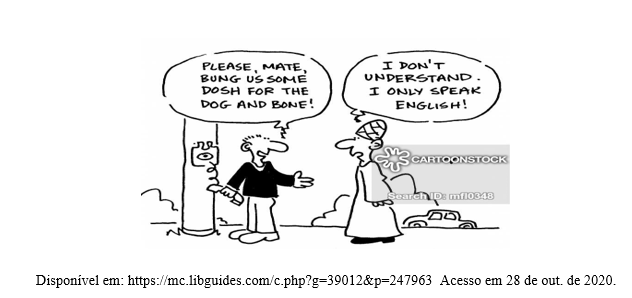
1. Mate (Australian/ British slang) a friend
2. Bung (British slang) to put, give or throw
3. Dosh (British slang) money
4. Dog and bone (British rhyming slang) telephone